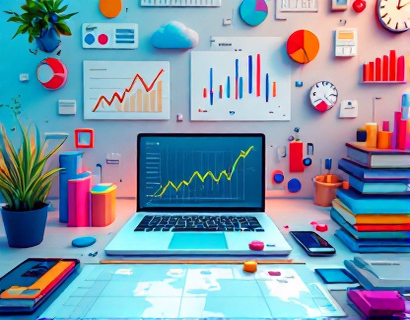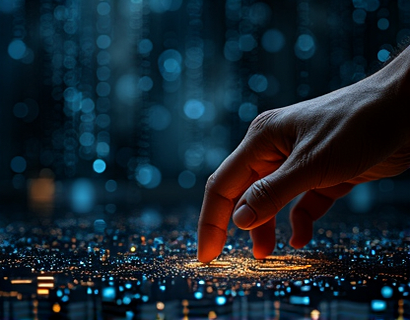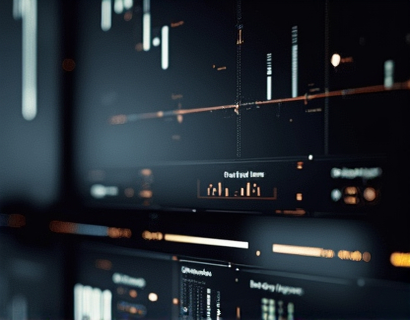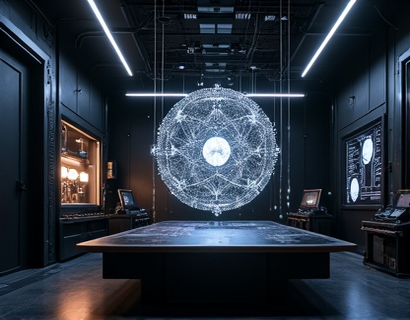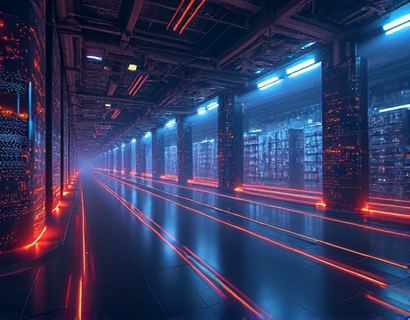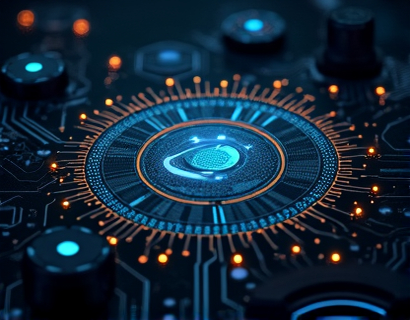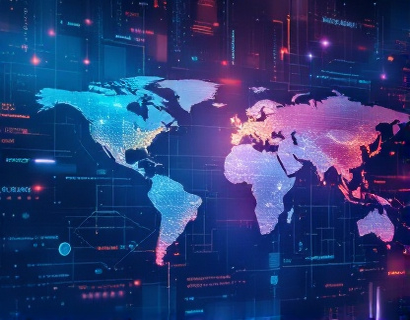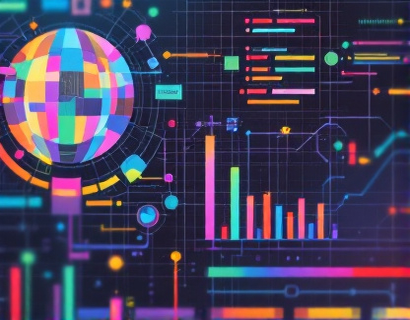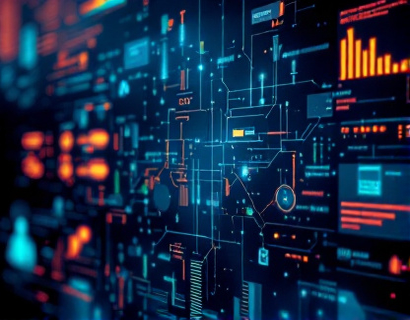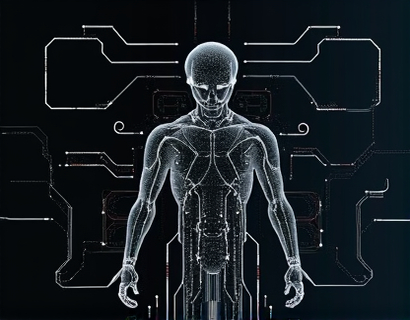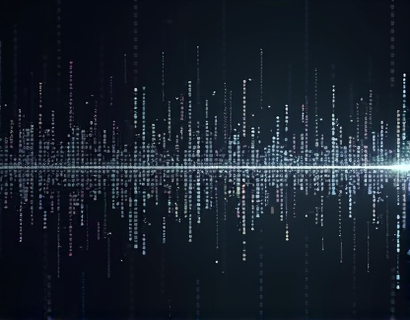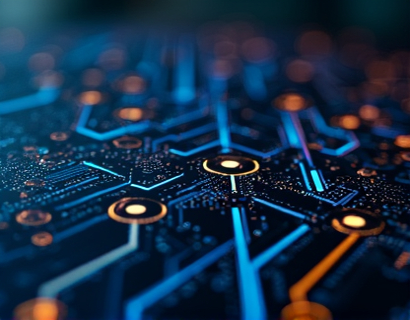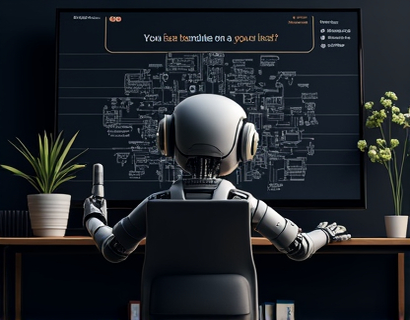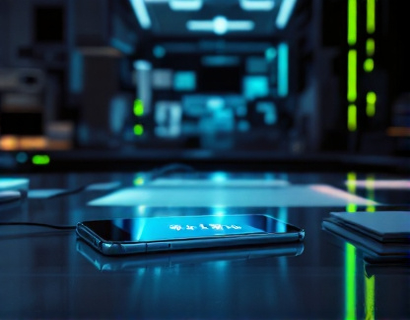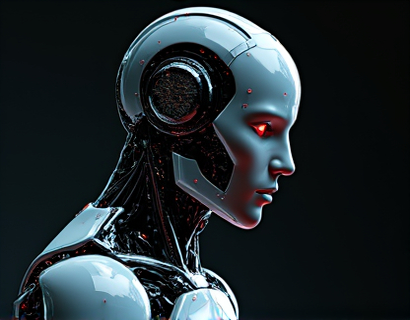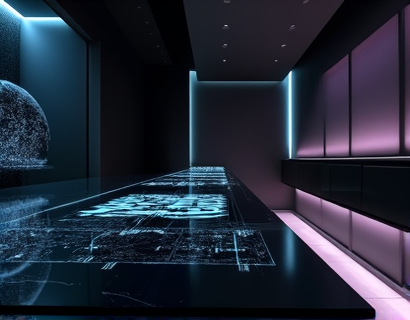Crypto AI Transformation: Revolutionizing Ucosystem App Engagement with Advanced Technology
The integration of blockchain and artificial intelligence (AI) is ushering in a new era of digital transformation, particularly within the realm of Ucosystem apps. This transformation is not just about adopting new technologies but about fundamentally changing how users interact with digital platforms. The synergy between blockchain's decentralized and secure nature and AI's predictive and adaptive capabilities is creating unprecedented opportunities for enhancing user engagement and driving growth in the digital landscape.
Ucosystem apps, which are designed to operate within a network of interconnected digital services, stand to benefit immensely from this technological fusion. By leveraging blockchain, these apps can ensure transparency, security, and trust, while AI can optimize user experiences through personalized interactions and intelligent automation. This article delves into the advanced strategies that are reshaping Ucosystem app engagement, exploring how these technologies are being harnessed to create more dynamic, responsive, and user-centric applications.
Blockchain: The Backbone of Trust and Security
Blockchain technology, at its core, is a decentralized ledger that records transactions across multiple computers in such a way that the registered transactions cannot be altered retroactively. This inherent characteristic makes blockchain an ideal solution for ensuring the integrity and security of data within Ucosystem apps. By eliminating the need for intermediaries, blockchain reduces the risk of data breaches and fraud, thereby building user trust.
One of the key applications of blockchain in Ucosystem apps is in identity verification and management. Users can create and control their digital identities on a blockchain, allowing for seamless and secure authentication across different services. This not only enhances user convenience but also empowers individuals by giving them full control over their personal data. For instance, a user can grant specific permissions to an app to access certain aspects of their identity without revealing unnecessary information.
Another significant benefit of blockchain in Ucosystem apps is smart contracts. These self-executing contracts with the terms directly written into code can automate and enforce agreements between parties. In the context of Ucosystem, smart contracts can facilitate seamless transactions, ensure compliance with rules and regulations, and reduce the need for manual intervention. This automation not only speeds up processes but also minimizes errors and costs.
AI: The Engine of Personalization and Intelligence
Artificial intelligence, particularly machine learning and natural language processing, is revolutionizing the way Ucosystem apps interact with users. AI's ability to analyze vast amounts of data and derive meaningful insights enables the creation of highly personalized user experiences. By understanding user preferences, behaviors, and patterns, AI can tailor content, recommendations, and interactions to individual needs, thereby increasing engagement and satisfaction.
Personalization is a critical aspect of modern Ucosystem apps. AI algorithms can analyze user data to predict what content or services a user is likely to find valuable. For example, a news aggregator app can use AI to curate a personalized feed based on a user's reading history and interests, ensuring that they see the most relevant articles. This level of customization not only keeps users engaged but also enhances the overall value of the app.
Moreover, AI-powered chatbots and virtual assistants are transforming user support and interaction within Ucosystem apps. These AI-driven entities can provide instant responses to user queries, guide users through complex processes, and offer real-time assistance. The ability of chatbots to understand natural language and context makes them highly effective in delivering human-like interactions, reducing the need for human intervention and improving user satisfaction.
Synergizing Blockchain and AI for Enhanced Engagement
The true power of integrating blockchain and AI in Ucosystem apps lies in their synergistic capabilities. By combining the security and transparency of blockchain with the intelligence and adaptability of AI, developers can create apps that are not only secure and trustworthy but also highly responsive and personalized. This dual approach addresses some of the most pressing challenges in digital engagement, such as data privacy, user trust, and personalized experiences.
One advanced strategy is the use of decentralized AI models, where AI algorithms are trained and run on a blockchain network. This approach ensures that data remains decentralized and secure, while AI models can still benefit from the collective intelligence of the network. For instance, a decentralized AI model can aggregate data from multiple sources without centralizing it, thereby maintaining user privacy and reducing the risk of data breaches.
Another innovative approach is the implementation of AI-driven governance mechanisms on blockchain platforms. These mechanisms can use AI to monitor and enforce rules within the Ucosystem, ensuring that all participants adhere to agreed-upon standards. For example, AI can detect and prevent malicious activities, such as spam or fraud, by analyzing patterns and behaviors in real-time. This proactive approach to governance enhances the overall reliability and trustworthiness of the Ucosystem.
Case Studies and Real-World Applications
Several Ucosystem apps have already begun to leverage the combined power of blockchain and AI to enhance user engagement. One notable example is a decentralized social media platform that uses blockchain to ensure data ownership and AI to curate personalized content. Users can control their data and choose what information to share, while AI algorithms recommend posts and connections based on their interests and interactions. This combination has led to higher user retention and engagement rates compared to traditional social media platforms.
In the finance sector, a blockchain-based trading platform has integrated AI to provide real-time market analysis and personalized trading recommendations. By analyzing vast amounts of market data and user behavior, the AI component helps traders make informed decisions, while the blockchain ensures secure and transparent transactions. This has resulted in increased user trust and a more robust trading community.
Another example is a decentralized gaming platform that uses blockchain to manage in-game assets and AI to create dynamic and adaptive gameplay experiences. Players own their digital assets on the blockchain, and AI algorithms generate unique challenges and rewards based on individual player performance. This not only enhances the gaming experience but also creates a more equitable and engaging environment for all users.
Challenges and Future Directions
While the integration of blockchain and AI in Ucosystem apps offers numerous benefits, it also presents several challenges that need to be addressed. One of the primary challenges is the technical complexity involved in developing and maintaining these systems. Developers must have a deep understanding of both blockchain and AI to create robust and efficient solutions. Additionally, the interoperability between different blockchain platforms and AI frameworks can be a hurdle, requiring standardized protocols and interfaces.
Another challenge is the regulatory landscape. As blockchain and AI technologies evolve, regulatory frameworks are still catching up. Ensuring compliance with data protection laws, anti-fraud regulations, and other legal requirements is crucial for the successful deployment of these technologies in Ucosystem apps. Developers and organizations must stay informed about regulatory changes and adapt their strategies accordingly.
Looking ahead, the future of Ucosystem apps lies in further innovation and collaboration. The development of more advanced AI models that can run efficiently on blockchain networks will be key. Additionally, the creation of open-source tools and platforms that facilitate the integration of blockchain and AI can accelerate adoption and innovation. As the technology matures, we can expect to see even more sophisticated and user-centric Ucosystem apps that redefine digital engagement.
In conclusion, the integration of blockchain and AI is transforming Ucosystem apps by enhancing security, personalization, and intelligence. By addressing the challenges and embracing the opportunities, developers can create apps that not only meet but exceed user expectations, driving growth and engagement in the digital landscape.






